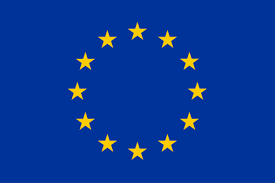Getting food on the climate agenda – FoodSHIFT2030 webinar – 15 June 2021, online

Climate change policy debates fail to consider the interconnected nature of food systems and involve a wide range of actors. This is why the FoodSHIFT2030 projec held a public webinar on the impact city-wide approaches could have on putting food on the climate agenda.
Agriculture should be considered in the climate change policy debate. On the one hand, agriculture and sectors related to it, like food and feed transport, feed import, fertilizer production, etc., are responsible for up to 30% of the EU and global greenhouse gases emissions. On the other hand, agriculture can have a positive impact on climate as soil is a crucial carbon sink if managed under sustainable farming practises.
FoodSHIFT’s webinar started with a presentation by Nourish Scotland, presenting their Glasgow Food and Climate Declaration, which they elaborated on with like-minded organisations (IPES-Food, FAO, WWF, URBANACT, ICLEI, etc.). They issued their Declaration to help commit subnational governments to tackle the climate emergency through integrated food policies and call on national governments to act ahead of the COP26 (1-12 November in Glasgow). Cities and subnational governments can sign the Declaration on www.glasgowdeclaration.org.
The webinar continued with Glasgow Good Food Partnerships, which launched a 10-year work plan to promote circular economy to reduce food waste in businesses and promote affordable, fresh, and healthy food systems in one of the UK’s most inequal cities.
The webinar then visited Barcelona to discuss the Barcelona Sustainable Food Capital 2021 project aimed at increasing integrative policies at the city level. The project is inspired from the Milano Urban Food Policy Pact.
Finally, the FoodSHIFT’s Barcelona Tech Food 3.0. Lab highlighted its work promoting both innovation in food and farming systems and citizen and bottom-up driven approaches. The Lab is currently implementing three projects:
- ROMI, using robotics in micro farms;
- Grow Observatory, collecting data on soil pollution and contamination; and
- Siscod, defining how local restaurants and inhabitants can reduce food waste through circular economy.
Want to learn more about these initiatives? Watch the recording of the webinar (also available in Spanish).
FoodSHIFT2030 is a Horizon 2020 project promoting food systems innovations in nine cities across Europe. More information about the 9nice FoodSHIFT Labs is available on the FoodSHIFT2030 website. Follow the project on social media using @FoodSHIFT2030 on Twitter, Instagram, YouTube and LinkedIn.
IFOAM Organics Europe contributes to the conceptual framework for further development of governance strategies and food policy strategies. We will also disseminate project outputs within the organic network and at our main events.


FoodSHIFT 2030 has received funding from the European Union’s Horizon 2020 research and innovation programme under grant agreement number 862716. This communication only reflects the author’s view. The Research Executive Agency is not responsible for any use that may be made of the information provided.

